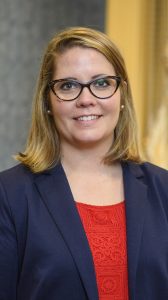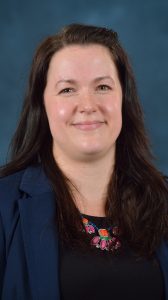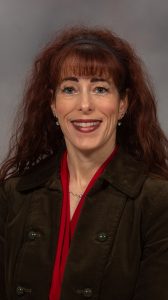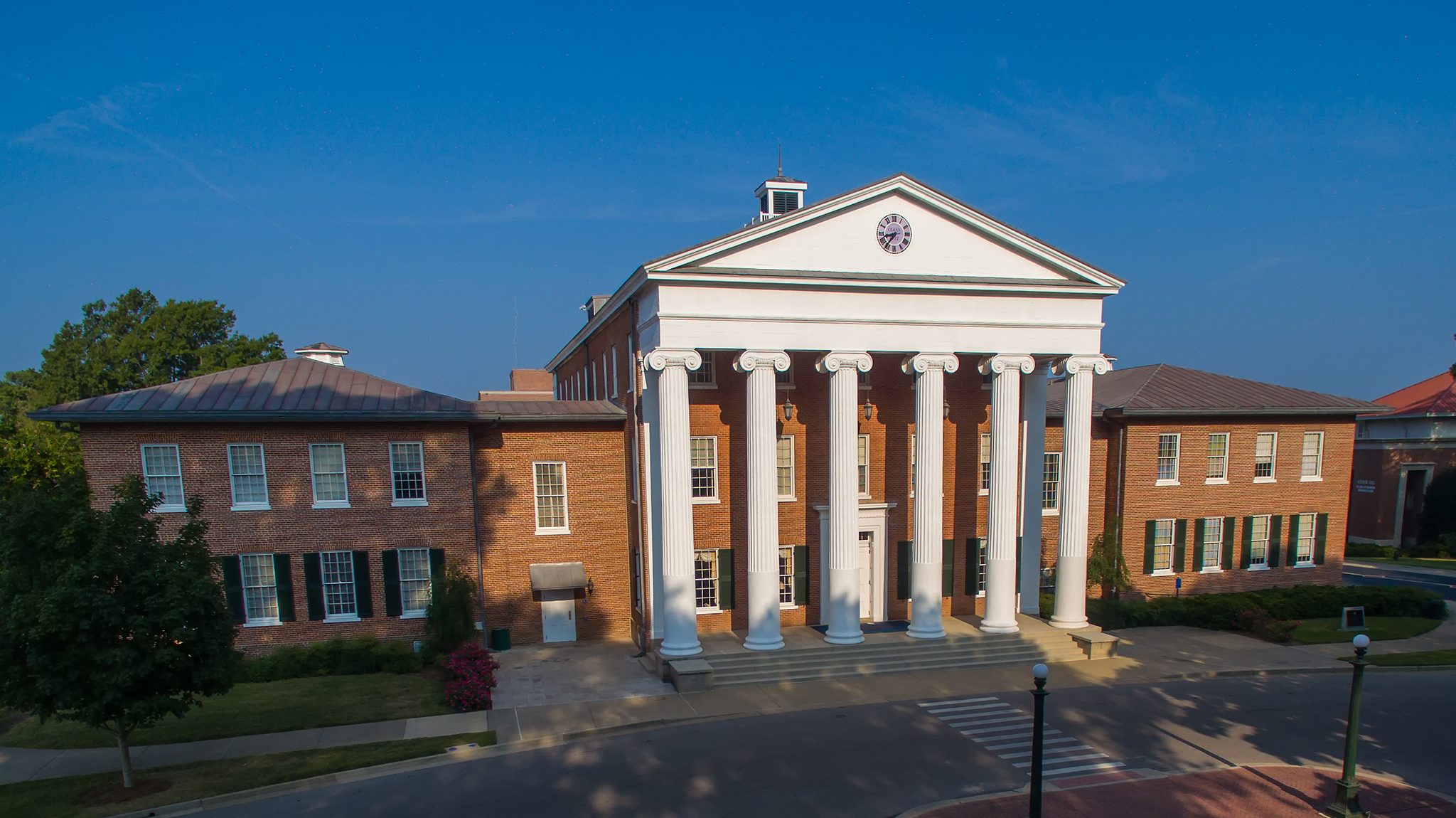
UM faculty members plan to use a new Walmart Foundation grant to create a program to improve access to fresh fruits and vegetables and increase food security for people in Mississippi. Photo by Robert Jordan/Ole Miss Digital Imaging Services
OXFORD, Miss. – Three University of Mississippi professors are recipients of a nearly half-million-dollar grant from the Walmart Foundation that will create a food prescription program to improve access to fresh food for Mississippians.
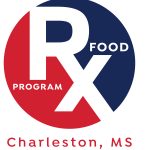 The $442,154 grant from the Walmart Foundation will fund a program that is expected to improve access to fresh fruits and vegetables and increase food security and food access for citizens of Charleston in Tallahatchie County.
The $442,154 grant from the Walmart Foundation will fund a program that is expected to improve access to fresh fruits and vegetables and increase food security and food access for citizens of Charleston in Tallahatchie County.
Titled “Hunger in Rural communities (HUNGeR): Integrating health and food systems for a sustainable food Rx approach,” the program is intended to improve the health outcomes of the entire household, as well as identify processes for spreading these kinds of programs to other communities and keeping them going once they are started.
The three professors are Anne Cafer, assistant professor of sociology, and Meagen Rosenthal, assistant professor of pharmacy administration, both from the Oxford campus, and Seena Haines, chair and professor of pharmacy practice at the UM Medical Center.
“By supporting research, learning and outreach on food insecurity, the Walmart Foundation’s generous grant aligns with the University of Mississippi’s dedication to fostering health and well-being in our region, nation and world,” Chancellor Glenn Boyce said. “We’re grateful to the Walmart Foundation for enabling the development of replicable, scalable interventions and programs.
“I offer my congratulations to the faculty for their achievement and for leading the way as we enter this national community of practice among other R1 institutions and non-governmental organizations.”
The program will take a holistic approach in providing households who lack regular access to healthy foods with fresh fruits and vegetables and nutrition counseling, as well as education on how to store, prepare and cook these items.
“This program is the culmination of some incredibly innovative and interdisciplinary work taking place at the University of Mississippi,” Cafer said. “The faculty, staff and community partners involved have spent two years working across a number of disciplinary and institutional boundaries to pilot and ultimately build a fundable program to address health at the nexus of food access and nutrition.”
The program is one of the first hosted by the Community First Research Center for Wellbeing and Creative Achievement, a new UM center with the mission of empowering Mississippi communities – from counties and cities to groups of citizens – to take charge of their community development, policy change and resilience building by using data and the arts.
The program is partnering with the James C. Kennedy Wellness Center in Charleston. Part of the Tallahatchie General Hospital Organization, the center, which opened in 2016, empowers the local community to lead healthy and happy lives through health and wellness programs, indoor and outdoor exercise options, and nutrition and self-care services.
“I am thrilled about the food Rx project and believe it will bring much-needed access to fresh produce and increased awareness of good nutrition practices to families in the Charleston area and, in turn, will improve health outcomes, food security and well-being,” said Catherine Moring, the center’s executive director.
“We saw great results and engagement in a similar project last year and are excited to see this project come to fruition. We hope to eventually expand the pilot program into other areas faced with high levels of food insecurity and diseases related to lifestyle and diet.”
Food insecurity is the lack of reliable access to affordable, nutritious food. A high rate of food insecurity makes unhealthy choices easy, accessible and affordable.
The food insecurity rate is 19.2 percent in Tallahatchie County, with nearly 2,800 food-insecure people, according to Feeding America’s Map the Meal Gap project. In Mississippi, an estimated 573,600 people are food insecure, or about one in five Mississippians.
“I am excited that our program has worked with the community to build upon the solid foundation of work that is ongoing in Charleston and Tallahatchie County,” Rosenthal said. “I am also very hopeful that the evaluation of this program will provide insights into how it could be sustained over the long term.
“The research tells us that food insecurity is a persistent problem that isn’t solved by single interventions, but one that requires a systematic solution. This program will be a step in that direction.”
Portions of Tallahatchie County also are food deserts where a significant number of residents are more than 1 mile (urban) or 10 miles (rural) from the nearest supermarket, according to the U.S. Department of Agriculture’s Economic Research Service.
Food deserts are areas where it is difficult to buy affordable or good-quality fresh food.
The program is attempting to create a more favorable food environment where the healthy choice becomes the easy and preferred choice.
Through the program, enrolled patients will be eligible to pick up a box of fruits and vegetables every two weeks for up to 24 months. The boxes will include recipes. Enrollees also will receive medical nutrition therapy and, every six months, receive complimentary health risk assessments.
The program will provide about 45,000 meals for 200 people for two years with the goals of improving objective health measures, restyling consumption patterns of fruits and vegetables, changing the knowledge of healthy food choices, and increasing the knowledge of families to prepare healthy food in a way that is appealing, easy and affordable.
“This program will provide holistic care promoting the consumption of nutrient-dense foods by addressing barriers to food access, empowering patients to make healthier choices – and feeling confident about what these food choices are – and recommending medical nutrition therapy for those with health conditions directly related to food choices,” Haines said.
The program also will address three critical research areas: addressing the patient referral system to a food prescription program, engaging the scarcity of long-term clinical outcomes data involving health metrics, and looking at the failure to develop mechanisms for sustaining these programs without a consistent infusion of grant funding.
The Ole Miss grant is among 13 grants awarded March 16 to organizations across the country by the Walmart Foundation. Other university awardees were the University of Florida and West Virginia University.
“Access to healthy food builds the foundation for good health in communities,” said Eileen Hyde, director of sustainable food systems and food access for Walmart.org. “Our goal is to improve people’s ability to more consistently consume nutritious food.
“That involves connecting people to the food they need as well as building confidence in their choices. We’re excited to support and learn from the University of Mississippi’s innovative program that will help Mississippians improve their health.”
The three professors are team leaders of the university’s Community Wellbeing Flagship Constellation. The Flagship Constellations initiative was unveiled in November 2017 as a collaborative effort among faculty, staff and students from the university’s Oxford and Medical Center campuses to explore and solve complex issues through the diversity of ideas.
The initiative includes multidisciplinary teams working to find solutions to grand challenges in the areas of brain wellness, community well-being and disaster resilience.
With both rural and urban communities facing increasing challenges in areas such as environmental health, personal health and housing, the Community Wellbeing Flagship Constellation’s research teams and programs work within communities to identify factors impairing their well-being and deploy new programs and practices to build stronger, more vibrant communities.
About Philanthropy at Walmart
Walmart.org represents the philanthropic efforts of Walmart and the Walmart Foundation. By leaning in where the business has unique strengths, Walmart.org works to tackle key social issues and collaborate with others to spark long-lasting systemic change. Walmart has stores in 27 countries, employing more than 2 million associates and doing business with thousands of suppliers who, in turn, employ millions of people. Walmart.org is helping people live better by supporting programs that work to accelerate upward job mobility for frontline workers, address hunger and make healthier, more sustainably-grown food a reality, and build strong communities where Walmart operates. To learn more, visit https://walmart.org/ or find us on Twitter @walmartorg.
